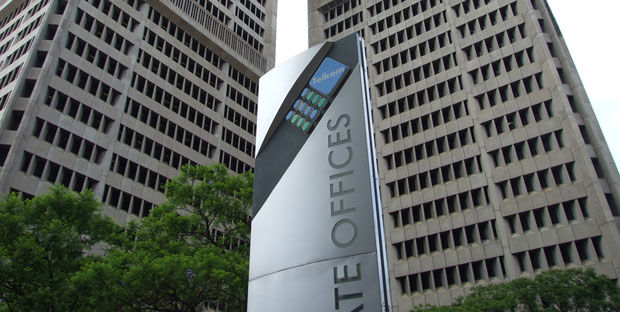
Government’s decision in August to retain two Telkom directors who small institutional investors wanted removed and vote off four independent investors has led to speculation that the purge of the board was driven by a long-term plan for the company. But conversations with people close to the government and Telkom suggest that far from having a strategy, the state has little clue what to do with the struggling fixed-line operator.
Plans under consideration include moving the shareholding in Telkom from the department of communications to the national treasury and the possible nationalisation of Telkom.
Public enterprises minister Malusi Gigaba confirmed that talks were being held on merging Telkom with state connectivity provider Broadband Infraco and state signal distributor Sentech.
Communications minister Dina Pule has denied that Telkom had no policy direction, saying earlier this week that her department was in the process of preparing a presentation to the cabinet on options for Telkom.
The cabinet would advise her department on how to proceed, she said.
Her comments have done little to reassure investors and further declines were recorded in Telkom’s share price this week. Analysts and minority shareholder RE:CM warned investors to avoid Telkom shares until there was more certainty in the market. Telkom stock is down by 42% since the beginning of the year and it now has a market capitalisation of R8,9bn, nearly a quarter of the value of its assets.
Irnest Kaplan, MD of Kaplan Equity Analysts, said that Telkom had great assets, but he would not advise people to invest in the group until there was clarity from the government on Telkom’s future strategy.
Daniel Malan, investment director at RE:CM, said the crisis at Telkom, which had left it without a CEO and sufficient board members to make up a quorum, was indicative of the government’s handling of its parastatals.
Quoted by Moneyweb, Malan said: “Given the government’s impeccable track record as a value-destroying shareholder in other parastatals, this outcome should not have surprised us… As a result our portfolio managers have been sellers of Telkom over the past year.”
Malan said RE:CM’s exposure to Telkom was small and declining.
A source close to the communication portfolio committee was sceptical of the plan to pass responsibility for Telkom to the treasury. She said the treasury already had its hands full overseeing rescue operations in a number of provinces. Also, government was concentrating more on its social responsibilities than on making Telkom a viable business entity. “The treasury is still answerable to the cabinet and cabinet took the decision to reject the Korean [KT Corp] deal, which many consider a good deal and one that would have introduced capital investment and huge strategic management investment.”
Merging Sentech, Broadband Infraco and Telkom in a bid to align the government’s information and communications technology assets has also been criticised by analysts, who believe that the merger of three companies, two of which are presently struggling, would not be beneficial. It was believed that a merger of this nature would not succeed unless structural issues within the companies were addressed.
Arthur Goldstuck, MD of World Wide Worx, questioned whether a merger of companies with such different roles would benefit the information technology sector, or simply impede their performance.
The issue of nationalising Telkom by buying out its smaller investors, which include the Public Investment Corp (10,6%) and Allan Gray (10,3%), has also been proposed. This is suggested because of a perceived disconnect between the government’s social responsibility issues and the need for a JSE-listed company to generate returns to its shareholders.
Allan Gray has indicated that it would consider selling its stake if the price was correct. The question is whether the government could afford to buy out all Telkom’s investors at the current price.
The treasury will balk at putting up scarce funds to buy out private investors in Telkom, but at the current rate of destruction of shareholder value it will soon be able to buy the shares for next to nothing. — (c) 2012 Mail & Guardian
- Visit the Mail & Guardian Online, the smart news source




